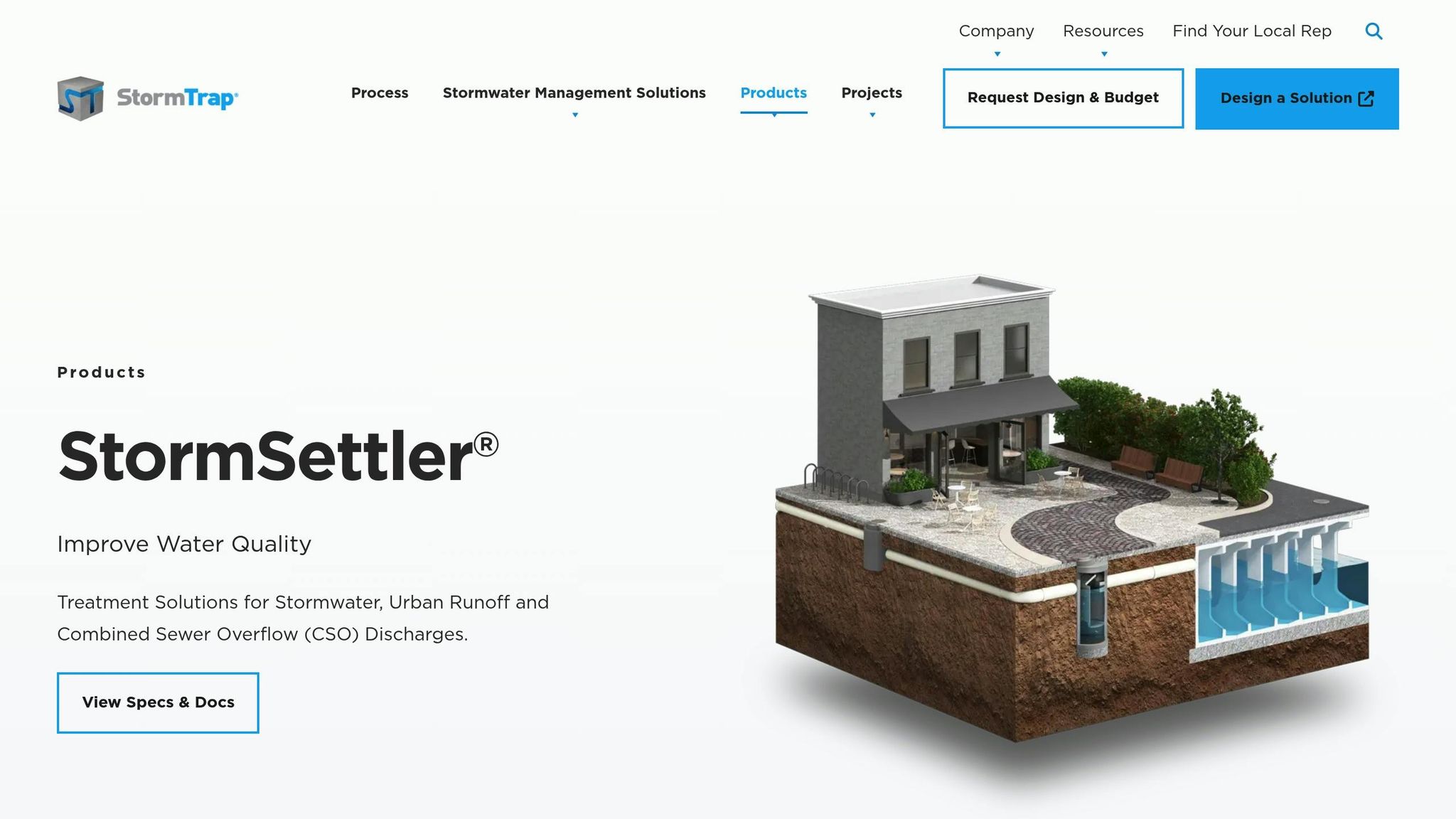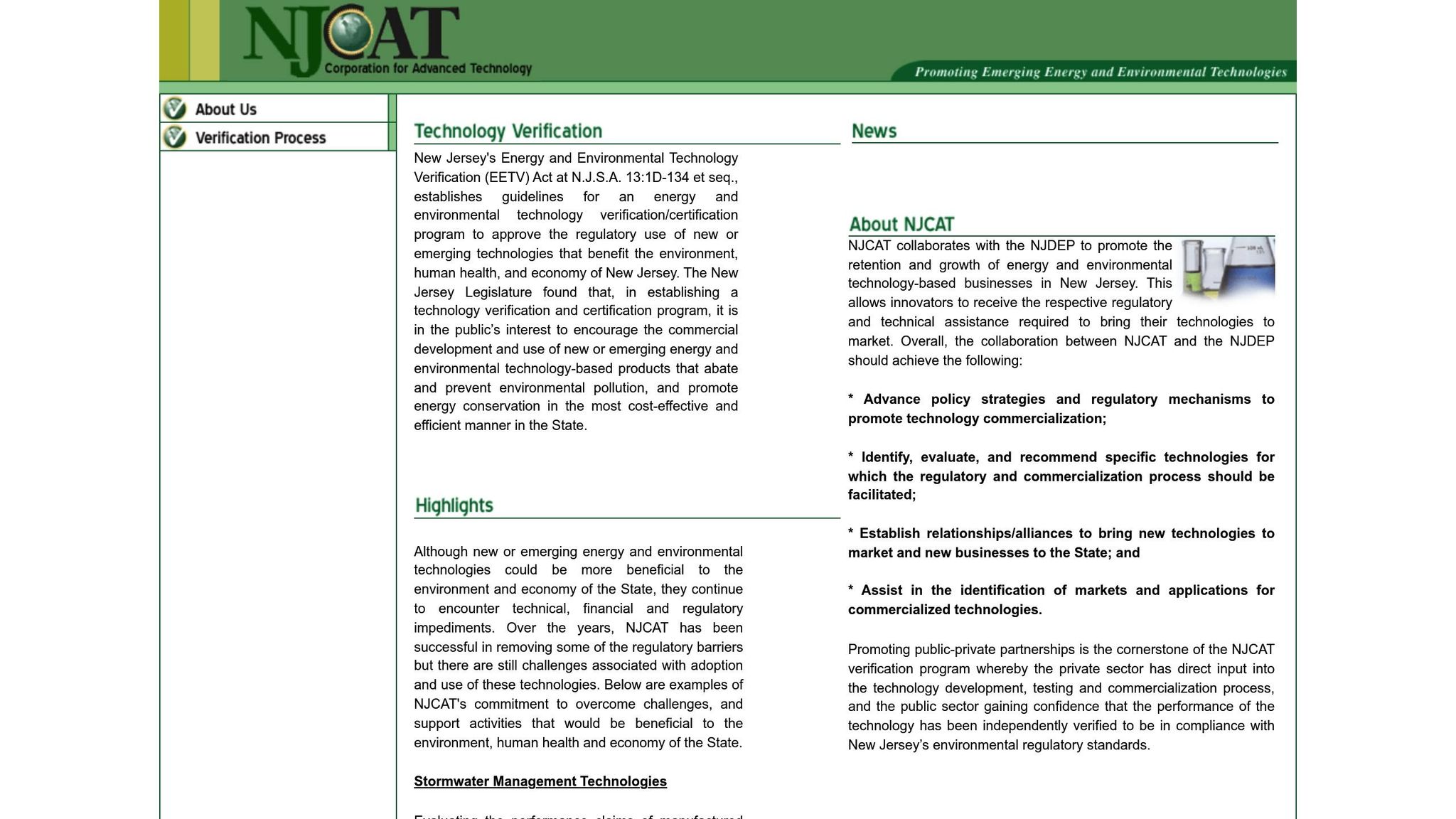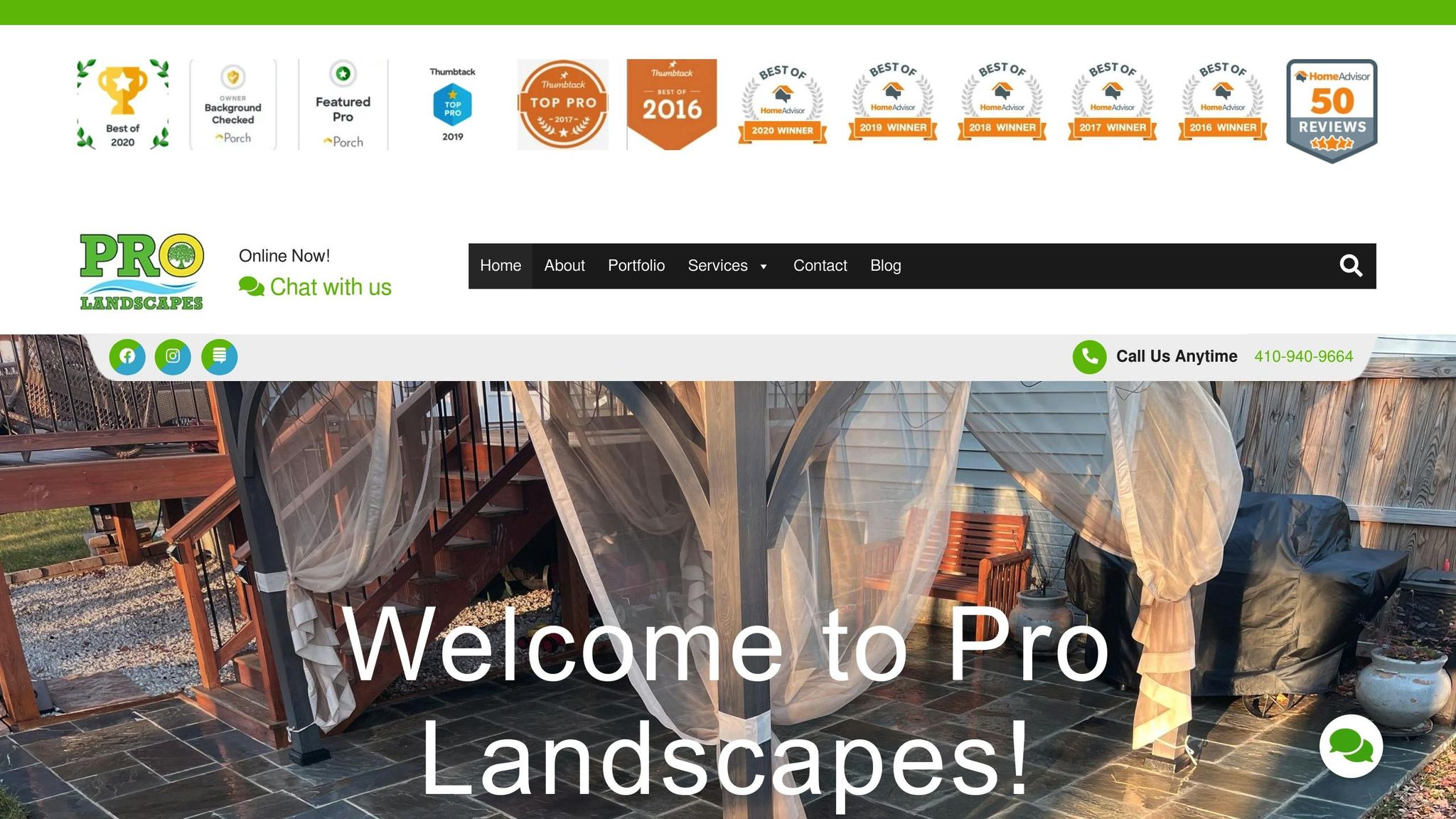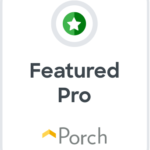- bhavya gada
- No Comments
NJCAT verification ensures stormwater filtration systems meet strict performance and regulatory standards, making them reliable for municipalities and engineers. Here’s what you need to know:
- What is NJCAT? The New Jersey Corporation for Advanced Technology (NJCAT) evaluates stormwater filtration systems for compliance with New Jersey’s stringent environmental rules. This process supports regulatory certification by the NJDEP (New Jersey Department of Environmental Protection).
- Why It Matters: Verified systems offer proven pollutant removal performance, faster permitting processes, and eligibility for public projects. They are essential for meeting stormwater compliance in New Jersey and beyond.
- How It Works: NJCAT uses independent third-party testing to validate manufacturer claims. Vendors pay a $20,000 fee (in installments) for this rigorous evaluation, culminating in a detailed report for NJDEP certification.
- Key Benefits: Verified systems streamline regulatory approvals, ensure pollutant removal efficiency, and reduce long-term risks for municipalities and developers.
- Recent Updates: In 2022, NJCAT adopted new sizing methodologies (NRCS approach) to improve guidance and accuracy, replacing older methods.
For Maryland and other states, NJCAT-certified systems are recognized under reciprocity agreements, making them a trusted choice for stormwater management projects.
Quick Tip: For compliance in New Jersey or Maryland, NJCAT-certified systems are often required. They provide third-party validation, ensuring reliability and regulatory approval.
StormSettler approved for Stormwater Runoff Treatment

How the NJCAT Verification Process Works

The NJCAT verification process has been carefully refined over the years to provide a reliable and detailed evaluation system for stormwater management technologies. Since its inception in 2001, it has grown into one of the most respected programs of its kind in the United States [3].
At the heart of the process is independent third-party validation. This means that unbiased experts assess the performance claims made by vendors, ensuring a balance between scientific rigor and practical application [2].
Step-by-Step Verification Process
The journey starts with a $1,000 Limited Preliminary Application, which helps determine if the system is ready for evaluation. Once accepted, the vendor enrolls in the Stormwater Treatment Systems Program, paying a total fee of $20,000 in four manageable $5,000 installments [2]. This payment plan allows companies to budget effectively while committing to the process.
The core of the verification process unfolds in several stages. Initially, NJCAT conducts a thorough review of the system’s technical specifications, design parameters, and preliminary performance data. Next, the system’s performance claims are tested against established protocols to verify their accuracy [5]. Finally, NJCAT compiles all findings into a detailed verification report, which serves as the foundation for NJDEP certification [5].
Once the application is reviewed and fees are processed, NJCAT rigorously tests the system’s performance to ensure it aligns with environmental standards.
Testing Protocols and Performance Standards
NJCAT’s testing protocols are designed to verify that manufactured treatment devices (MTDs) meet New Jersey’s stringent environmental regulations [3]. These tests focus on critical factors like removing suspended solids, reducing pollutant loads, and assessing maintenance needs.
The program actively incorporates feedback from the private sector during technology development, testing, and commercialization [3]. This collaborative approach ensures that testing reflects real-world conditions while maintaining the scientific precision needed for regulatory compliance.
Performance standards are directly tied to New Jersey’s stormwater management rules (N.J.A.C. 7:8-5.2(j)). These rules require hydrodynamic and filtration MTDs to achieve NJCAT verification before they can receive NJDEP certification [3]. This ensures that only verified systems are approved for stormwater compliance in the state.
For major development projects, the stakes are even higher. When a project triggers the requirements of the Stormwater Management rule (N.J.A.C. 7:8), an MTD must not only be NJCAT verified but also NJDEP certified [4]. This dual certification guarantees that systems meet both performance expectations and regulatory mandates.
2022 Updates to NJCAT Protocols
In 2022, NJCAT introduced updates to its protocols, building on over two decades of experience. These changes aim to address new challenges in stormwater management while aligning more closely with industry standards.
One notable update involves the adoption of the Natural Resources Conservation Service (NRCS) methodology for sizing calculations. This replaces the older Rational Method in certification letters, as outlined in Chapters 9.5 and 11.3 of the NJDEP BMP Manual [4]. This shift provides more precise sizing guidance, ensuring that verified systems are appropriately scaled for their intended use.
These updates also enhance vendor credibility and boost confidence among regulators and end-users [5]. By refining methodologies and evaluation criteria, the process has become more predictable for manufacturers and more dependable for municipalities and engineers selecting stormwater solutions.
Through these updates, NJCAT continues to fulfill its mission of supporting the development of energy and environmental technologies. By verifying performance claims against regulatory standards, the program ensures that manufacturers, municipalities, and engineers can rely on stormwater management systems that meet both environmental and practical needs [5].
Pros and Cons of NJCAT-Verified Filtration Systems
When tackling stormwater management, understanding the differences between NJCAT-verified and non-verified systems is essential. Each option has its strengths and challenges, and evaluating these trade-offs helps property owners and engineers make better decisions.
Benefits of NJCAT Verification
NJCAT verification offers several advantages that make it a compelling choice for stormwater management projects:
- Regulatory Compliance and Market Access: NJCAT-verified systems meet New Jersey’s stormwater compliance standards, making them a requirement for many projects in the state.
- Independent Third-Party Validation: With NJCAT, system performance claims are independently verified, adding credibility and trustworthiness to the technology.
- Faster Permitting Processes: NJCAT verification can streamline the permitting process, reducing review times and administrative hurdles. This efficiency can help avoid project delays and lower associated costs [1].
- Better Commercial Opportunities: NJCAT’s outreach efforts and educational seminars promote the adoption of verified systems, often leading to their inclusion in state bid specifications and expanding their market potential [1].
- Scientific Rigor: NJCAT’s thorough evaluation process ensures that verified systems adhere to accepted scientific and engineering principles, contributing to environmental and public health benefits [1].
While these benefits are significant, it’s important to weigh them against the challenges that come with NJCAT-verified systems.
Drawbacks to Consider
Despite their advantages, NJCAT-verified systems come with some notable challenges:
- Complex Evaluations: Assessing stormwater technologies is inherently difficult. As NJCAT explains:
"Stormwater Management Technologies in particular are difficult to evaluate. Pollutant removal performance depends upon many factors, e.g., influent particulate size distribution, influent pollutant concentration (loading), stormwater flow rate, sump design and capacity, and maintenance" [1].
- Sizing Issues: Proper sizing is critical. Undersized manufactured treatment devices (MTDs) can underperform, leading to frequent maintenance and higher costs. On the other hand, oversized systems take up more space, complicate retrofits, and increase project expenses [6].
- Higher Upfront Costs: NJCAT-verified systems often come with a higher price tag. However, their smaller footprint can offset costs in some cases. For instance, systems like FocalPoint filter runoff at over 100 inches per hour per square foot, compared to traditional systems that manage just 1–4 inches per hour. This efficiency allows FocalPoint systems to be up to 30 times smaller than detention pond solutions [7].
- Testing Variability: A lack of standardized sediment particle size for testing can lead to inconsistent performance under different conditions, creating confusion for stakeholders [6].
NJCAT-Verified vs. Non-Verified Systems Comparison
Here’s a side-by-side look at how NJCAT-verified systems stack up against non-verified systems:
| Feature | NJCAT-Verified Systems | Non-Verified Systems |
|---|---|---|
| Regulatory Compliance | Required to meet NJ stormwater rules [3] | Not suitable for projects under NJ stormwater rules [4] |
| Performance Validation | Independently verified [3] | No third-party validation |
| Initial Costs | Higher due to verification fees and advanced technology | Lower upfront costs but potential compliance risks |
| Permitting Timeline | Faster review and approval processes [1] | Standard timelines; potential delays |
| Market Access | Eligible for public projects and state bids [1] | Limited to private projects |
| Maintenance Requirements | Verified and documented protocols | May lack verified maintenance standards |
| Reliability | Backed by rigorous testing protocols | No independent validation of performance claims |
Choosing between NJCAT-verified and non-verified systems depends on the specific needs of your project. For projects that must comply with New Jersey’s stormwater rules, NJCAT verification is non-negotiable. In other situations, decision-makers need to weigh the higher upfront costs of verified systems against their proven performance and regulatory advantages.
Using NJCAT-Verified Systems in Maryland Landscaping
In Maryland, where water quality challenges demand attention, effective stormwater management is a must for any landscaping project. NJCAT-verified filtration systems provide property owners and contractors with reliable solutions that not only meet regulatory standards but also align with environmental goals. These systems form a solid foundation for Maryland’s strict stormwater requirements, and companies like Pro Landscapes MD are experts in tailoring services to meet these needs.
Maryland Stormwater Regulations and NJCAT Systems
Maryland’s stormwater management policies emphasize filtration techniques such as bioretention and landscape infiltration to manage runoff effectively [8]. Systems that pass NJCAT’s rigorous performance verification are well-suited to meet these regulations, which aim to reduce pollutants and improve water quality in the Chesapeake Bay [10]. NJCAT protocols ensure these systems meet the necessary standards.
A prime example of this is the Jellyfish Filter, a membrane-based stormwater treatment system approved by the Maryland Department of the Environment for primary water treatment [10]. This system boasts impressive pollutant removal rates: 89% for Total Suspended Solids (TSS), 60% for Total Phosphorus, and 50% for Total Nitrogen [10].
Joel Garbon, Product Manager for Imbrium Systems, shared insights into the development of the Jellyfish Filter:
"Our rigorous TARP (Technical Acceptance Reciprocity Partnership) field testing demonstrated superior real-world proven performance, as recently indicated by the issued NJCAT (New Jersey Center for Advanced Technology) performance verification. We listened to the environmental engineering and regulatory communities and designed the Jellyfish as a compact, long-lasting membrane filter system that captures a significant pollutant load, with low cost maintenance requirements" [10].
NJCAT-verified systems also help municipalities and private property owners comply with Phase I and II of the Clean Water Act Stormwater Program [9]. These federal regulations require the removal of pollutants like trash, oils, and sediments. By adhering to NJCAT standards, property owners can streamline compliance while addressing regulatory challenges tied to adopting new technologies [3]. This verification process not only ensures environmental protection but also simplifies meeting Maryland’s stormwater mandates.
Pro Landscapes MD‘s Stormwater Management Services

Pro Landscapes MD incorporates NJCAT-verified filtration systems into their landscape designs, offering comprehensive stormwater management services throughout central Maryland. Their expertise spans drainage, grading, and hardscape integration – key elements for successfully implementing these filtration systems.
The company recognizes the value of integrating certified stormwater technologies into planning and design strategies to minimize site development impacts and achieve watershed goals [1]. Serving areas like Howard County, Montgomery County, Carroll County, Frederick County, Prince George’s County, and Baltimore County – including cities such as Bethesda, Columbia, Gaithersburg, and Ellicott City – Pro Landscapes MD brings local expertise to address the region’s unique stormwater challenges.
Their approach blends functionality with aesthetics. For example, when installing environmental pavers or creating bioretention areas, NJCAT-verified filtration systems can be seamlessly integrated to ensure top performance. This holistic strategy provides property owners with solutions that are both visually appealing and highly effective.
Pro Landscapes MD’s commitment to sustainable outdoor spaces makes NJCAT-verified systems a natural fit for their projects. These systems give property owners confidence that their stormwater management investments meet strict performance standards [9]. For commercial projects, the company tailors solutions to specific site conditions, while their drainage and yard restoration expertise ensures efficient upgrades to existing stormwater infrastructure.
Austin Meyermann, BaySaver Operations Director, emphasized the importance of third-party verification:
"Programs such as this give confidence to the market that the BaySaver Separation System can meet strict performance criteria. We are very pleased to receive third-party verification by NJCAT. This step was an important precursor to NJDEP certification, which will be issued by the end of the month" [9].
For Pro Landscapes MD’s clients, this verified performance means peace of mind. It ensures their stormwater management systems will deliver as promised while meeting Maryland’s environmental protection standards.
sbb-itb-843f8be
Conclusion
NJCAT verification serves as a trusted standard, confirming that filtration systems meet critical performance and regulatory benchmarks. For homeowners and property managers in Maryland, these verified systems provide a reliable solution to comply with state and local stormwater management requirements. To earn this verification, systems must demonstrate at least 80% Total Suspended Solids (TSS) removal under controlled testing conditions [11][12]. This rigorous standard directly contributes to better water quality and stronger environmental protection across the region.
Recent updates to NJCAT protocols in 2022 have brought even greater clarity and reliability to the testing process [11]. These refinements ensure that property owners investing in NJCAT-verified systems benefit from technology that has been rigorously evaluated for its effectiveness in real-world conditions.
Key Points to Keep in Mind
- Proven Performance and Compliance: NJCAT verification guarantees pollutant removal, supports regulatory compliance, and improves water quality [11][12][13].
- Independent Testing: Unlike systems relying solely on manufacturer claims, NJCAT-verified filtration systems undergo stringent third-party testing and are listed in a public database, making verification simple for regulators and property owners [11].
- Ongoing Certification: The NJDEP requires hydrodynamic sedimentation devices to be retested every five years to maintain certification, ensuring consistent performance over time [11].
- Increased Confidence: Independent validation of manufacturer claims provides assurance to property owners, engineers, and regulators alike [14].
For Maryland property owners, choosing NJCAT-verified systems is a smart move for stormwater management. Experts like Pro Landscapes MD can ensure these systems are installed and maintained correctly, maximizing their effectiveness.
The growing demand for third-party verification in stormwater treatment reflects a broader industry commitment to accountability and technological advancement [15]. By opting for NJCAT-verified systems, property owners not only safeguard their investments but also contribute to environmental stewardship. These systems help Maryland projects meet regional regulations while delivering dependable, science-backed performance, reinforcing the importance of this trusted verification process.
FAQs
What are the advantages of using an NJCAT-verified filtration system for stormwater management?
Choosing an NJCAT-verified filtration system means opting for a product that has undergone strict testing to meet New Jersey’s stormwater regulations. These systems are independently evaluated, so you can be confident in their ability to manage stormwater runoff effectively.
An NJCAT certification ensures the system performs reliably, helping to minimize pollutants and promote better water management. Plus, this verification adds credibility to projects that must adhere to environmental compliance standards.
What is NJCAT verification, and how does it ensure stormwater filtration systems are effective?
What Is NJCAT Verification?
NJCAT verification is a thorough evaluation process designed to ensure stormwater filtration systems meet high-performance standards. One key benchmark? The ability to remove at least 80% of Total Suspended Solids (TSS). These evaluations involve detailed testing, either in a laboratory setting or under real-world field conditions, following protocols set by the New Jersey Department of Environmental Protection (NJDEP).
This certification process guarantees that filtration systems perform consistently and effectively. By meeting these standards, they help reduce pollutants in stormwater runoff and align with state regulations, contributing to cleaner water and better overall stormwater management.
How do NJCAT’s updated protocols impact the certification and performance of filtration systems?
Updates to NJCAT Protocols: 2025 Revisions
The latest changes to NJCAT protocols, including the 2025 revisions, have brought in tougher testing and verification standards for stormwater filtration systems. These new standards aim to ensure that systems meet higher performance levels, leading to more dependable and efficient stormwater management across New Jersey.
By setting stricter certification requirements, these updates play a key role in safeguarding water quality while encouraging the adoption of advanced technologies for stormwater treatment. The result? Certified systems that are better prepared to tackle real-world environmental challenges head-on.


















Chat with Us